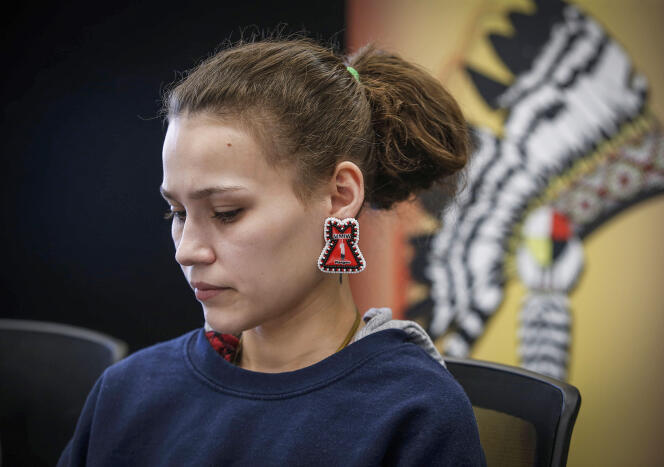[ad_1]

In a few days, a few weeks at the latest, Prairie Green Landfill, the huge open-air waste dump north of Winnipeg in the heart of Canada’s Great Plains, will be combed through. Heavy excavation equipment, brigades of sniffer dogs, and men clad in hazmat suits to protect them from toxic gases and any risk of contamination will track down the tiniest traces of bones and organic tissue amid millions of cubic meters of waste and sludge.
Just like in the TV shows, forensics will check whether the samples are likely to belong to two women: Marcedes Myran and Morgan Harris, both officially reported missing, within days of each other, in May 2022. They were respectively 26 and 39 years old.
Two deaths with no bodies. Two native women, isolated, vulnerable, living on the streets or in emergency shelters in the same area of Winnipeg, the capital of the province of Manitoba, where they were last seen.
Serial killer
Investigators are convinced that they were the victims of a serial killer: Jeremy Skibicki, 35 at the time of the events. He was arrested on May 18, 2022, after murdering an Indigenous woman, Rebecca Contois, whose body was found. The police are also blaming him for the murder of another woman, whom they have not been able to identify, but who has been named Buffalo Woman by the province’s native communities. He will go on trial in Winnipeg on April 29, charged for these four murders.
From the beginning of the investigation, the police had suggested that the remains of the missing women might have been left in the landfill. However, they deemed the search too costly and dangerous and decided not to carry out any search. The victims’ families have battled for nearly two years to win their case: On March 22, Justin Trudeau’s federal government and the Premier of Manitoba, Wab Kinew, the only Indigenous to lead a Canadian province, released the sum of C$40 million (27.4 million euros) to finally search every inch of the site.
“It’s a relief to know that maybe I’ll be able to bring Mom home,” said Harris’ daughter Cambria with a sad smile. She also sees it as an opportunity to offer reparation to an entire community. “It’s about showing that our Indigenous women, our Indigenous people that we’re worth it, we’re valued, we’re loved and we are more than worth searching for,” she said at a press conference in March.
Indigenous over-represented in femicides
The names of Harris, Myran, and Buffalo Woman have been added to the long list of hundreds, if not thousands, of Indigenous women who have disappeared or been murdered in Canada over the decades. According to Statistics Canada, 490 First Nations, Inuit, or Métis women (the country’s three Indigenous groups) were killed between 2009 and 2021. They make up less than 4% of the population, but alone account for nearly one in four victims of the femicides committed in the country.
You have 42.39% of this article left to read. The rest is for subscribers only.
[ad_2]
Source link

